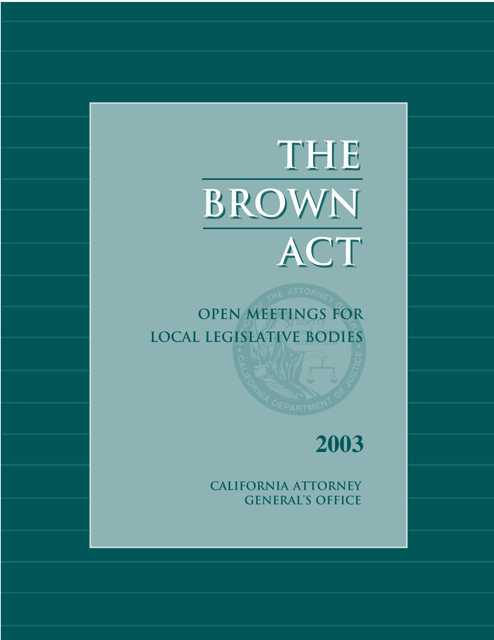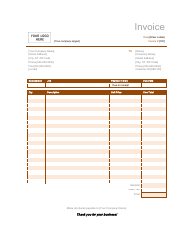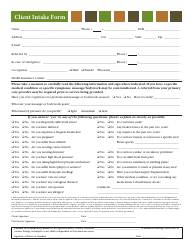The Brown Act: Open Meetings for Legislative Bodies - California
The Brown Act: Open Meetings for Legislative Bodies is a legal document that was released by the California Department of Justice - a government authority operating within California.
FAQ
Q: What is the Brown Act?
A: The Brown Act is a California law that governs open meetings for legislative bodies.
Q: Which legislative bodies does the Brown Act apply to?
A: The Brown Act applies to local government bodies in California, such as city councils, school boards, and county boards of supervisors.
Q: What does the Brown Act require?
A: The Brown Act requires legislative bodies to hold their meetings in public, provide notice of the meetings, and allow public participation.
Q: What is the purpose of the Brown Act?
A: The purpose of the Brown Act is to ensure transparency and openness in the decision-making process of local government bodies.
Q: Can legislative bodies hold closed meetings under the Brown Act?
A: Legislative bodies can only hold closed meetings under specific circumstances, such as for discussions regarding personnel matters, ongoing litigation, or certain property negotiations.
Q: What are the consequences for violating the Brown Act?
A: Violations of the Brown Act can result in legal challenges to actions taken during closed meetings and potential legal penalties.
Q: Can the public record meetings held under the Brown Act?
A: Yes, the public has the right to record meetings held under the Brown Act, as long as it does not disrupt the proceedings.
Form Details:
- The latest edition currently provided by the California Department of Justice;
- Ready to use and print;
- Easy to customize;
- Compatible with most PDF-viewing applications;
- Fill out the form in our online filing application.
Download a printable version of the form by clicking the link below or browse more documents and templates provided by the California Department of Justice.






























